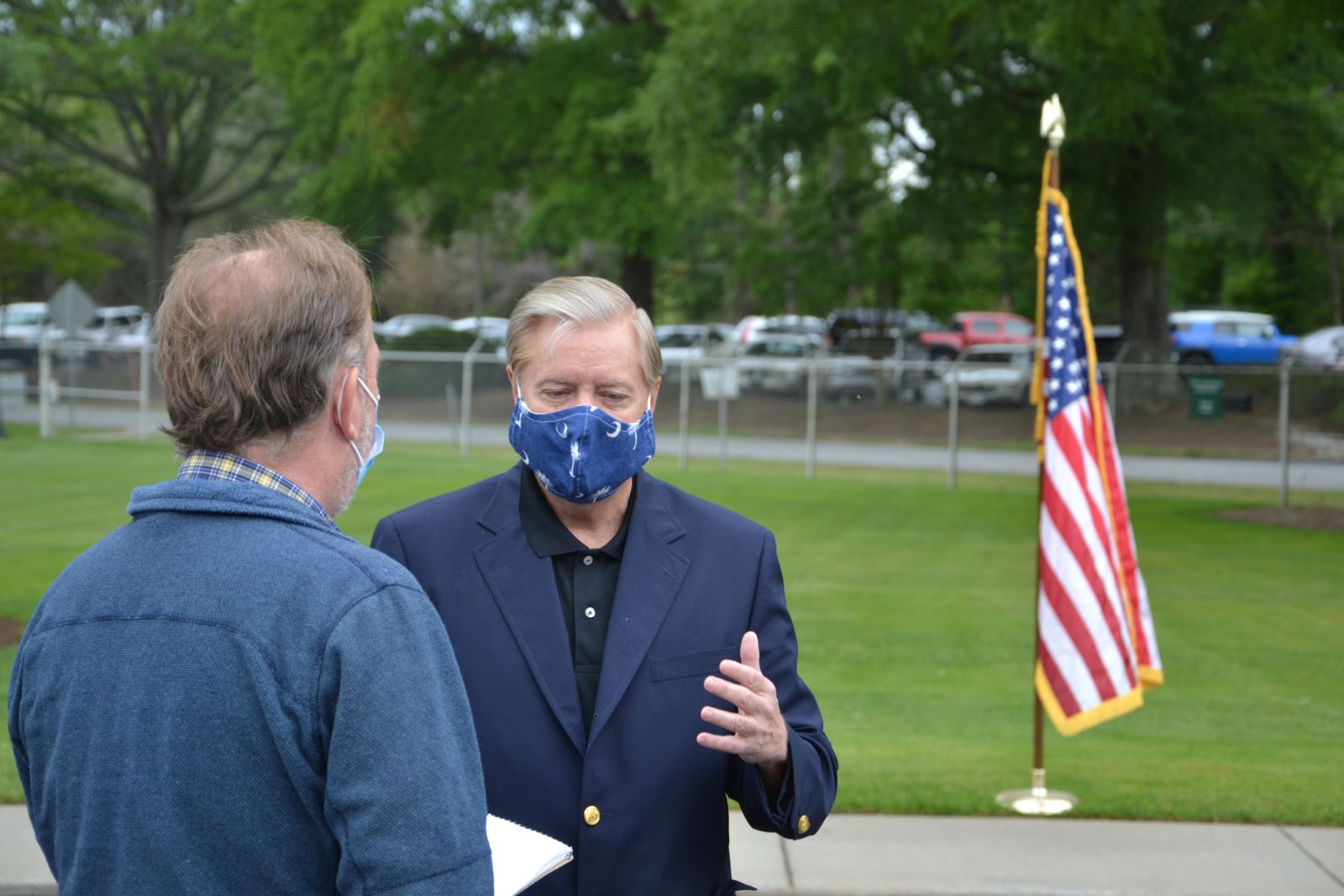Graham introduces legislation aimed at onshoring PPE
Ross Norton //July 22, 2020//

Sen. Lindsey Graham, R-S.C., on Wednesday made good on a pledge he made at the Pendleton Milliken plant in April by introducing legislation he says will make sure medical personal protective equipment is made in America.
Along with Sens. Shelley Moore Capito, R-W.Va., and Mike Rounds, R-S.D., Graham introduced what the senators are calling the U.S. Made Act of 2020 to “decrease U.S. dependence on countries like China for critical personal protective equipment for our health care providers,” according to a news release from Graham’s office.
The senators said uncertainty over future market conditions has made American companies reluctant to commit to long-term investments in domestic production of the equipment.
“With the spread of coronavirus, the inability of the United States to be self-sufficient with our supply of PPE has shown itself to be a national security issue,” the news release said. “Just as the United States does not rely on China to supply military uniforms or equipment, we must not rely on them to supply critical PPE.”
Items declared national priorities by the legislation include testing swabs, surgical and respirator masks, face shields, surgical and isolation gowns, sanitizing and disinfecting wipes, gauzes and bandages, and privacy curtains, beds and bedding.
The bill is modeled after the Berry Amendment and outlines personal protective equipment acquisition requirements for the Strategic National Stockpile, according to Graham’s office. The legislation also establishes an investment credit for qualifying personal protective equipment manufacturing projects. Modeled after the 48C Advanced Manufacturing Tax Credit, eligible U.S. manufacturers will receive a 30% credit against equipment costs associated with PPE manufacturing, according to the news release.
Graham stood on a tarmac in Greer on April 26 and thanked the people responsible for bringing 1.5 million masks from China. He thanked Boeing and Discommon founder Neil Ferrier for their roles in making it happen. Even then, however, he didn’t hide his unhappiness that it took their uncommon efforts to bring personal protective equipment from China.
“We don’t want to do this again,” he said at the time. “In the fall we want the masks made in the United States.”
Two weeks later he stood on the grounds of the Milliken mill in Pendleton and spoke of plans to make sure certain medical supplies and equipment are manufactured in the United States with protections similar to those in the Berry Amendment, which requires the Department of Defense to buy some items, such as military uniforms, from U.S. makers.
Inside that plant, 75 workers were treating fabric that would have been in Asia. The fabric was woven in Greenwood at Greenwood Mills, sent to Milliken & Co.’s Pendleton mill and treated. Later it would go back to Greenwood Mills, be sewn into hospital gowns and returned to Milliken for delivery to the customer — the Federal Emergency Management Agency.
“This has been a wakeup call for America and we’re going to answer the call,” Graham said at Milliken. “As I speak, 2.7 million hospital gowns are being manufactured in this plant. It’s over a $20 million order.”
Graham said he wants the manufacture of those supplies to be removed from China, in particular.
“Coronavirus has been a painful wake-up call that we are too reliant on nations like China for critical medical supplies,” he said in the news release. “Without changes, China remains set to dominate the PPE market for years to come. We have seen firsthand the problems not having a reliable source of PPE places on our health care system. It is my hope that we include this legislation in any additional Phase IV relief package. The Chinese grip on this critical supply chain must come to an end, and this legislation accomplishes that goal. I’m going to do everything I can to make sure that South Carolina leads the way when it comes to getting the medical supply chain out of China.”
Earlier this week, an industry coalition representing 21 organizations, including the S.C. Textile Council, released a statement (.pdf) outlining policy principles and objectives needed for reshoring and safeguarding domestic personal protective equipment manufacturing. The letter calls for creating a strong domestic supply chain by implementing strong procurement rules.
Graham said in April that South Carolina is in a better position than any state to manufacture the equipment.
“When you talk about bringing back the medical supply chain to the United States, when it comes to gowns and masks and gloves, South Carolina will benefit the most,” he said. “We have advanced textile manufacturing with advanced manufacturing (so) that we could get into the ventilator business.”
















